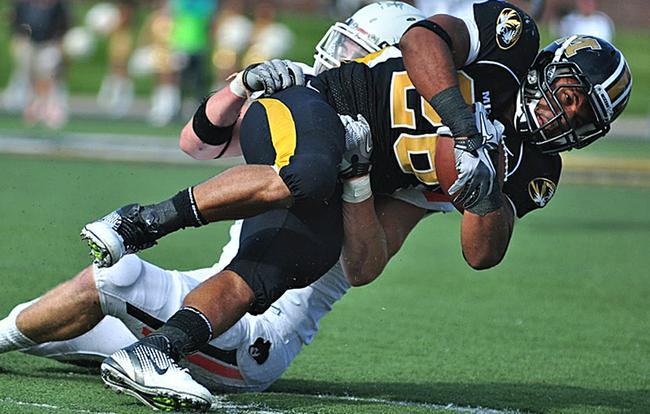
The general requirements for playing running back in the highly physical Big 12 Conference are size, speed and strength. To survive with just two-thirds of the equation, you have to be a one-of-a-kind talent in the right system.
“I think if you are going to get an undersized running back, there has to be something special about the guy,” Missouri coach Gary Pinkel said. “He’s got to bring something to that position. With spread offenses now getting guys out in space rather than just lining up in the ‘I’ formation, I think it’s allowed smaller running backs to excel.”
So it has been with Missouri sophomore running back Henry Josey. Josey was largely an afterthought after a rather nondescript training camp left him buried on the depth chart. But injuries to junior Kendial Lawrence and senior De’Vion Moore put Josey in the starting role, and he’s entrenched himself since.
Josey leads the Big 12 in rushing with 855 yards, and his 8.6 yards per carry far outpace his conference and national peers. He’s rushed for 100 yards in four of his last five games, including a 138-yard performance last week against No. 4 Oklahoma State.
“It’s come a long way, but I really don’t pay attention to all those numbers,” Josey said. “I think it is a good thing for me not knowing the numbers that keeps me going so much.”
It’s true that numbers don’t tell the whole story, but there’s no ignoring a statistic that keeps most running backs from finding success. Josey’s 5-foot-10-inch, 190-pound frame doesn’t give him the ideal size for playing running back in the Big 12.
“Generally, we’ve always said if we have an undersized running back, we have to identify something that would make him special,” Pinkel said.
What Josey lacks in size he makes up for in pure speed. Arguably the fastest player on the Missouri roster, Josey is hard to catch when he turns the corner. When he blistered Western Illinois for 263 yards and three touchdowns, Josey averaged a whopping 18.8 yards per carry.
“He’s got some quick speed,” Pinkel said. “He touches the football, he’s a difference guy and he’s a young player. Boy, you just have to give him a little seam and with his acceleration he’s really a very impressive guy.”
But Josey’s biggest impact has been on the Missouri offense as a whole. The Tigers rank 13th in the nation and first in the Big 12 in rushing, only a year removed from having the sixth-best ground attack in the conference. Josey’s breakthrough year has helped bail out a passing attack that has struggled to find a rhythm at times.
“It makes it easier on the offense if you can get a run game going,” junior receiver T.J. Moe said. “It makes it easier on the receivers because then guys are peeking in the backfield, trying to see if the running back broke loose. Henry has made it easier on the receivers this year.”
When asked if he could carry the ball 30 to 35 times in a game, Josey said he’d be “more than happy” to oblige. As Josey continues to impress, Pinkel said he might have to answer the calls from fans and media to get the ball in the young back’s hands more often.
“I would suggest that I would listen to you guys more and make sure that he touches it enough,” Pinkel said.